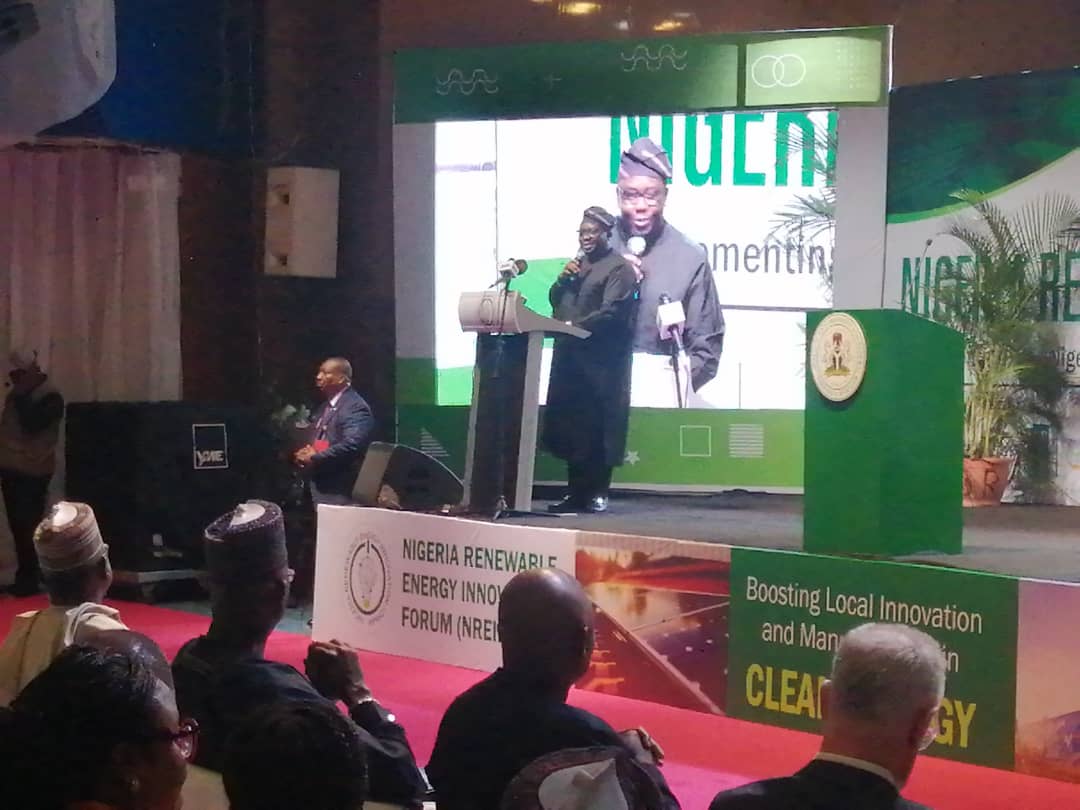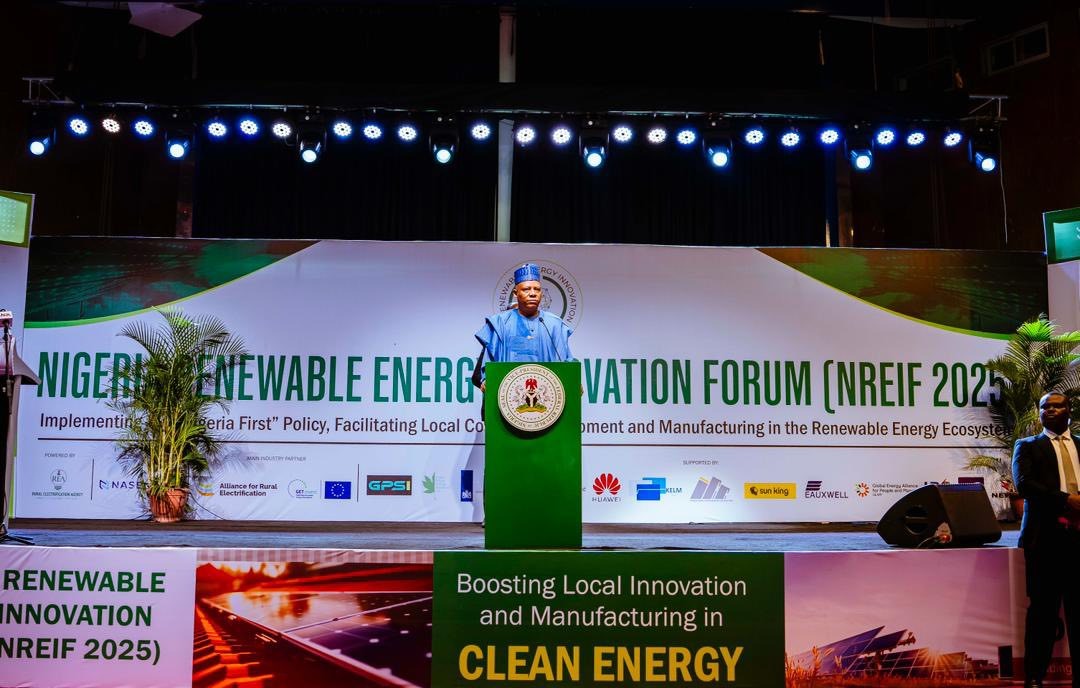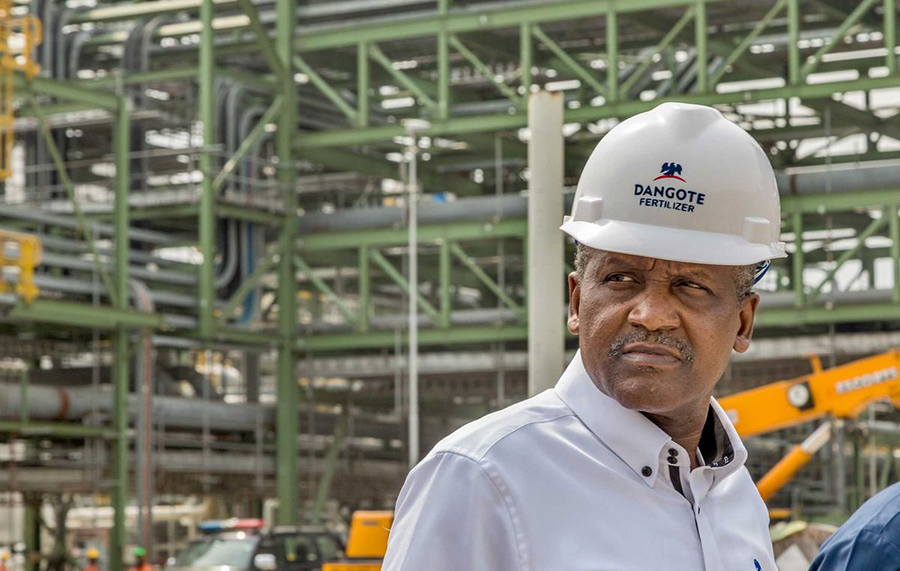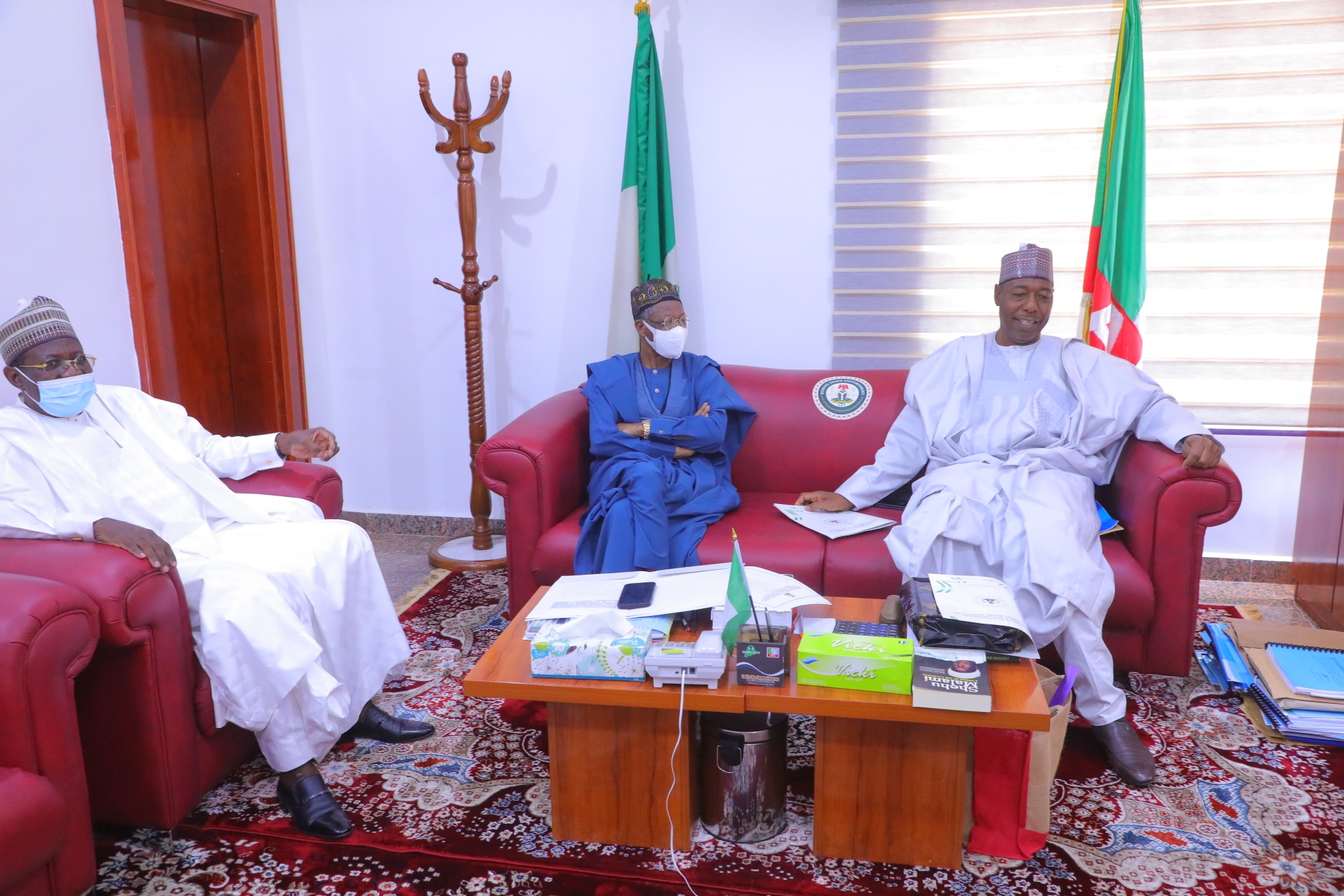By: Goodluck E. Adubazi, Abuja.
Nigeria has officially staked its claim to become Africa’s renewable energy leader.
Speaking on Tuesday, 14th October, 2025, at the first – ever Nigeria Renewable Energy Innovation Forum – NREIF 2025, organized by the Rural Electrification Agency – REA, held at Transcorp Hilton, Abuja, Themed “Implementing the Nigeria First Policy: Facilitating local content and Manufacturing in the Renewable Ecosystem, said Under the Presidential Power Initiative (PPI), Nigeria has added 700 megawatts of new transmission capacity in 2024 alone. Collaboration with Siemens Energy, CMEC, and Power China aims to inject an additional 7,000 megawatts into the national grid.
The minister highlighted that Nigeria recorded only one grid disturbance this year — a sharp contrast to frequent collapses in the past.
“Grid collapse will soon be a thing of history,” Adelabu assured.
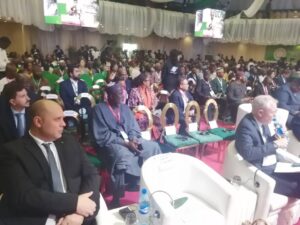
Adelabu also announced the successful integration of the 700MW Zungeru Hydropower Plant and the rehabilitation of NIPP plants, unlocking 345MW of additional generation capacity.
Nigeria’s average generation rose to 5,300MW in 2024, up from 4,200MW in 2023 — a remarkable 1,100MW increase in less than two years.
Further more, to stabilize the market, President Tinubu approved a ₦4 trillion bond to offset verified debts owed to generation companies and gas suppliers.
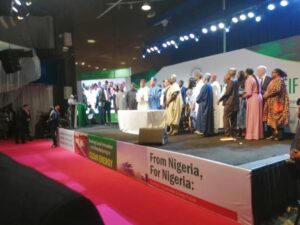
According to power Minister, cost-reflective tariff reforms have boosted industry revenue from ₦1 trillion in 2023 to ₦1.7 trillion in 2024, with projections surpassing ₦2 trillion in 2025.
A targeted subsidy framework, the Minister said is also being developed to protect vulnerable households while promoting market viability”.
The power minister reaffirmed Nigeria’s commitment to achieving energy security, industrial competitiveness, and inclusive growth. Through collaborations between the Power Ministry and the Rural Electrification Agency, off-grid and mini-grid projects continue to expand access to rural communities while fueling industrial clusters.
The Honourable Minister of Power, Adebayo Adelabu, announced sweeping reforms and local content initiatives at the first-ever Nigeria Renewable Energy Innovation Forum (NREIF 2025), held at the Transcorp Hilton, Abuja.
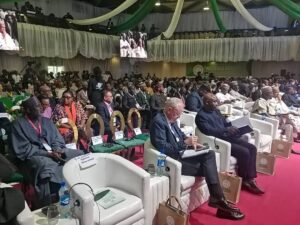
Organized by the Rural Electrification Agency (REA), the two-day event (October 14–15) themed “Implementing the Nigeria First Policy: Facilitating Local Content Development and Manufacturing in the Renewable Energy Ecosystem” gathered industry leaders, policymakers, and investors to chart a sustainable future for Nigeria’s energy sector.
“Today, we start at the intersection of policy, innovation, and investment,” Adelabu declared. “NREIF 2025 isn’t just another event — it’s a declaration that Nigeria is ready to lead Africa’s renewable energy transformation.”
Minister Adelabu emphasized that the Nigeria First Policy represents more than a slogan — it’s a strategic blueprint for industrial self-reliance and economic sustainability.
“Our vision is for every solar panel and energy system deployed across Nigeria to proudly carry the label ‘Made in Nigeria,’” he said, noting alignment with President Bola Ahmed Tinubu’s agenda on innovation, value addition, and industrial self-sufficiency.
The policy aims to shift Nigeria’s energy narrative from access to industrialization, prioritizing local value creation and job generation through renewable technologies.
The federal government’s new multi-pronged approach to the power sector includes reforms across legislation, infrastructure, and market liberalization.
The Electricity Act 2023 — a major milestone — decentralizes electricity governance, granting states autonomy to establish subnational electricity markets. So far, 15 states have secured regulatory independence, marking a historic shift from over-centralization that hindered progress for decades.
With a population exceeding 200 million, centralization has failed us. The new decentralized model is the future,” Adelabu asserted.
The Honourable Minister further stressed “We are moving from energy access to energy industrialization,” Adelabu concluded. “Nigeria’s renewable future will be built by Nigerians, for Nigerians.”
The two day event scheduled for October 14th – 15th, 2025 gathered industry leaders, policymakers, and investors to chart a sustainable future for Nigeria’s energy sector.






